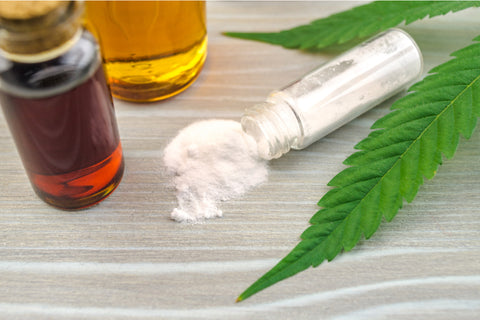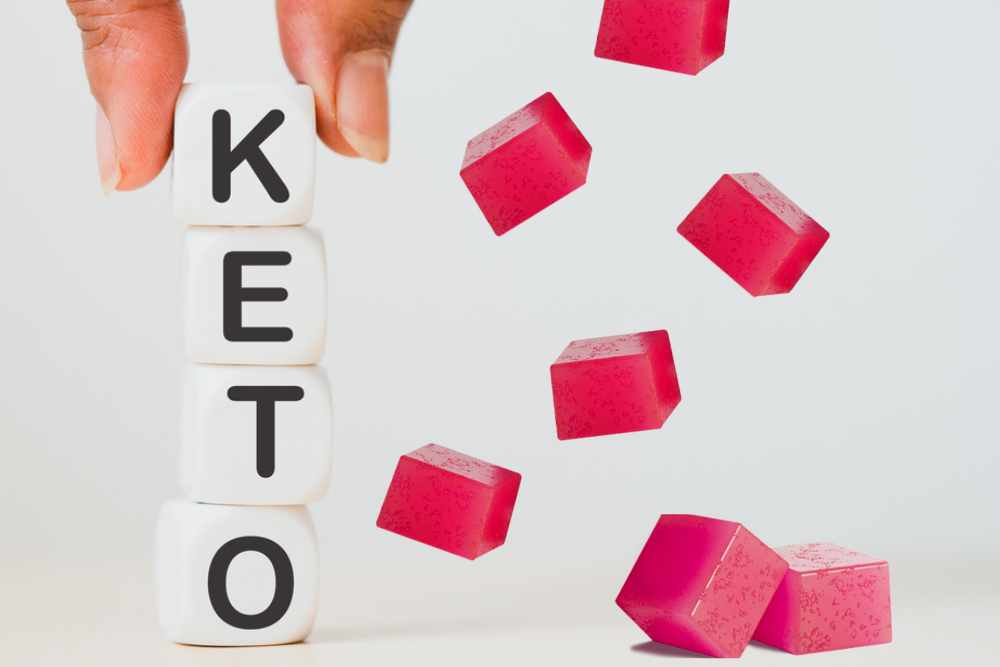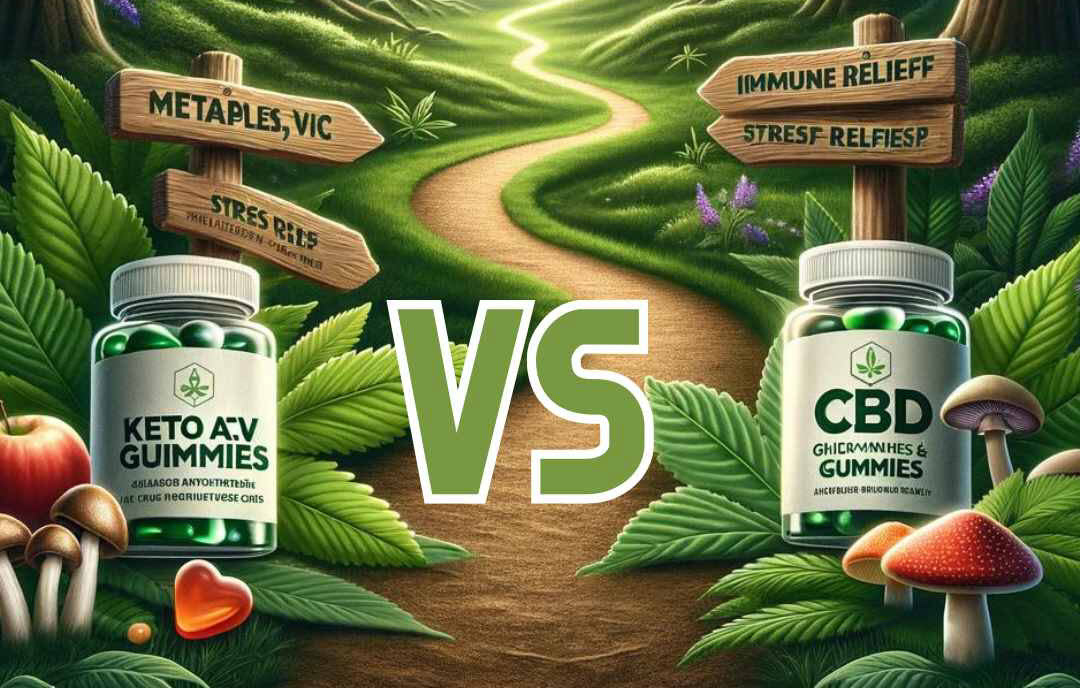CBD and Memory: How Cannabidiol Can Help
From chronic pain relief to anxiety disorders reduction, cannabis oil offers a wide range of potential benefits. CBD for memory has become a new and trending search in the world of cannabis. Researchers and scientists alike are becoming increasingly curious to dive further into the potential benefits of CBD treatments on human body and how CBD may contribute to solving mental health problems such as memory loss and focus disorders.
We remember different types of memories for different lengths of time. Short-term memory? Those can last seconds to hours. Long-term memory? Those can last for years and years. A working memory? Well it means just that - this type of memory works to remember something through constant repetition. Remembering your boss’ new phone number - that’s working memory. As we recall memories, many parts of our brain talk rapidly to each other, piecing together new information with our previous experiences and memories.
When you think of cannabidiol, most don’t picture it being a helpful memory aid. Doesn’t cannabis make you more forgetful? Can it help my nervous system? What’s the difference between THC and CBD? Can they both help this brain function?
In today’s article, we’ll be discussing how memory works and how hemp-derived CBD products may be able to help!
So let’s get to it - working memory, engage!
What is Cannabidiol?
CBD is the medical short term for cannabidiol, a non-psychoactive cannabinoid, derived from the Cannabis Sativa L. plant, also known as the hemp or marijuana plant. As a naturally occurring compound commonly used in oils, salves, and tinctures, it has several therapeutic properties, aiming to provide a feeling of relaxation and calmness. Unlike tetrahydrocannabinol (THC), this compound won’t get users “high”.

CBD oil can be extracted from both marijuana and hemp plants. When CBD is derived from the hemp plant, there may be 0.0% - 0.3% THC present. However, pure CBD oil derived from the marijuana plant may have 0.3% THC or greater present.
CBD for focus has sparked interest for humans of all ages, not to mention the potential brain health and overall wellness benefits that it may influence including improved sleep, mood, and well-being.
Studies have shown that cannabis oil may help reduce chronic pain by affecting the endocannabinoid system 's activity, reducing inflammation, and interacting with neurotransmitters.
Other recent studies suggest medical marijuana could be used to help treat people with opioid addiction. In one such study, cannabis oil was administered to people with heroin use disorder. Over the course of a week, the oil significantly reduced heroin users’ cue-induced cravings, withdrawal anxiety, resting heart rate and salivary cortisol levels. No serious adverse effects were discovered.
Cannabidiol vs. Tetrahydrocannabinol (THC)
Let’s talk biochemistry 101 *puts on white lab coat* - the molecular structure of CBD and THC are very similar. There are over 110 active cannabinoids inside marijuana plants, with CBD being one of the many. Our bodies contain cellular receptors known as cannabinoid receptors. The cannabinoids found in marijuana and hemp that bind to these receptors (CBD and THC, for example) are chemically similar to what the body produces with endocannabinoids. These cannabinoid receptors in the brain take part in the modulation of learning and are especially important for brain functions such as working and short-term memory.
When you think of marijuana getting you high, it’s the THC that does that. Tetrahydrocannabinol, or THC for short, is one of the cannabinoids that binds to CB1 receptors to release dopamine in the brain and create a sense of a high. Hence, producing a psychoactive (“high”) effect.

On the other hand, CBD pure oil does not produce “the high” that is associated with THC. High quality CBD oils have a non-psychoactive effect. Like THC that binds strongly with CB1 receptors, Cannabidiol binds very weakly (sometimes it doesn’t even bind at all) to CB1 receptors. CBD usage can even interfere with the binding of THC and reverse the psychoactive effects of it.
Check out the following post If you’re interested in learning more about CBD vs. THC
Does CBD Oil Help with Memory Improvement?
Since the early 1940’s, scientific research proved that memories are held within nerve cells, in groups of neurons. These interconnected brain cells fire together as a response to specific stimuli. The more of these neurons that fire together, the more the cells, interconnectedly, get stronger.
Neurologically, synaptic plasticity is the fundamental mechanism of learning and memorizing. Or as I like to put it, the more flexible and adaptable our synapses are to neuronal stimulation, the better we’re able to connect the dots (aka learn and retain information).

In a recent study performed on mice, synaptic plasticity was slightly altered by CBD treatment. The CBD-treated mice had increases in spine density in the lateral amygdala and hippocampus aspects of the brain.
This finding suggests that CBD alone might exert small effects on spine density.
In addition, a 2019 study found that 15 human subjects, taking daily oral administration of 200 mg of cannabidiol for 10 weeks, had a greater total hippocampal volume and higher plasma CBD concentration.
These findings suggest that CBD may be a useful option in treatments for a range of neurological disorders characterized by hippocampal pathology.
CBD for Memory Loss: Alzheimer’s and Dementia
Alzheimer’s disease is the 6th leading cause of death in the United States today. From 2000 to 2017, deaths from Alzheimer’s increased by 145%. 145% is insane when you think about it! 1 in 10 Americans (over the age of 65) has Alzheimer’s.
Dementia is an overall term for diseases and conditions characterized by cognitive decline (declines in memory, language, and thinking skills that affect a person’s ability to perform every task). Alzheimer’s disease, for instance, is the most common cause of dementia.
So what does the research tell us about Alzheimer’s and Dementia patients treated with cannabidiol?
A 2019 study performed on mice looked at prolonged CBD treatment on effects on memory, motor performance, and anxiety. Interestingly enough, researchers found that Alzheimer’s disease transgenic mice revealed positive effects of 20 mg/kg CBD product.
Cannabidiol may have positive effects on memorization, anxiety, and motor performance.
A 2018 study published in Cannabis and Cannabinoid Research targeted hippocampal subfield volumes with prolonged CBD oil treatment. Experts concluded that cannabinoids may be useful and therapeutic for a range of neurodegenerative disorders including Alzheimer’s disease.
Cannabidiol may be useful for clinical disorders characterized by hippocampal pathology.

CBD for Focus
Can I improve my focus with the help of cannabis plant? Hold that thought.
Long and colleagues performed a study on anxious mice with Cannabidiol implemented. The mice were given cannabidiol every day for 3 weeks and observed that there were no anti-anxiety effects found.
Another study done with rats concluded that lower CBD dosage (2.5, 5, 10 mg/kg) showed a significant increase in focus and confidence with entering the maze.
Researchers are working on it. For now, there are animal studies showing promise that cannabidiol may enhance focus.

CBD Oil, Memory, and Focus: What the Research Says
In a 2004 rat study published in Neuropharmacology found that rats taking CBD-rich extracts had no effect on working / short-term memory. On the other hand, rats who were dosed with THC-rich extract experienced a working / short-term memory deficit. Thus, suggesting that cognitive functions such as working / short-term memory are not sensitive to CBD-rich extracts.
As for Pure CBD, there was no found effect of CBD-rich extracts on working / short-term memory.
According to a systematic review published in 2018 in Psychopharmacology, researchers analyzed how cannabinoids modulate memory processing through interactions with the ventral hippocampus and mesolimbic dopamine system. When comparing the effects THC and CBD on signaling pathways, researchers found that molecular effects induced with Cannabidiol directly oppose those observed of THC. Cannabidiol exerts its effects through interacting with 5-HT1A and THC targets its effects through the CB1 receptors. This means that THC and Cannabidiol differentially control mesocorticolimbic dopamine (DA) activity states and emotional memory processing.
Cannabidiol displays antipsychotic properties and can help modulate emotional memory processing.

Recently, an open-label clinical trial demonstrated therapeutic effects of prolonged cannabidiol treatment on psychological symptoms and cognitive function. 20 frequent cannabis users underwent a 10-week open-label trial of 200 mg of oral-use CBD treatment. Psychological and cognitive assessments were completed at baseline and post-treatment. The CBD drug was found to be well tolerated with no reported side effects and had several neurological benefits.
Participants reported significantly fewer depressive and psychotic-like symptoms at post-treatment relative to baseline and exhibited improvements in verbal learning and memorization.
Prolonged Cannabidiol treatment appears to have promising therapeutic effects for improving cognition, memory, learning, and decreasing loss of memories.
Recently published in Frontiers in Behavioral Neuroscience, a 2019 study assessed the effects of THC and CBD on fear memory reconsolidation in rats. During the clinical trial, the rats received six continuous foot shocks (to initiate fear). 24 hours later, the rats were re-exposed to the shocks (to recall fear). Directly after the recall of shocks, the rats received an oral administration of low dose THC alone, high dose THC, CBD isolate, CBD + low dose THC, CBD + high dose THC. Researchers found that CBD alone significantly reduced the fear memory. A combination of CBD and THC also reduced the fear response. THC was only found to reduce reconsolidation of learned fear only when administered with Cannabidiol.
CBD alone was found to significantly reduce the fear response memory.
An update on memory function, published in Substance Abuse and Rehabilitation, discussed the acute and chronic effects of medical cannabis on memory. In acute effects, CBD oil may be a protective measure for some aspects of memory by inhibiting THC-induced impairments. Cannabidiol may have therapeutic potential in reversing certain cognitive impairments induced by THC in cannabis. In chronic effects, CBD oil may improve brain health, by reversing some of the neurobiological and behavioral effects of THC. Also, cannabis high in CBD and low in THC may help reduce memory impairment.
Acute and chronic effects of Cannabidiol have therapeutic potential in reversing cognitive impairments and preventing memory loss.

How to Use CBD Oils to Improve Your Memory
Whether you’re a first timer using cannabidiol or are just wanting to focus more on staying consistent with your routine, it’s applicable to everyone.
Taking a canabis oil dosage that you’re comfortable with is up to you (as well as when you take it)! Customers have reported that taking CBD oil in the morning helps boost memory and keep their focus. Customers have also reported that using broad spectrum CBD or CBD isolate as a midday pick me up works great too!
We recommend starting out with 1 full droplet of tincture and adjusting your dosage from there. You can always adjust how much CBD oil you take once you figure out what feels appropriate for your needs.
CBD Oil for Memorization and Focus: Final Thoughts
Whether individuals are looking to help reduce social recognition memory deficits, short and long-term memory impairments, improve learning capabilities, or help modulate emotional processes, CBD oil holds true as a therapeutic, 100% natural method for improving focus, memory and learning and other brain functions. These studies suggest that cognition and memory are valid and therapeutic targets for CBD oil.
However, further research needs to be done on human subjects and clinical trials to determine and assess the full efficacy of cannabis oil as a potential treatment for memory and focus. Large sample size, randomized control trials need to better assess the benefits and effects of CBD oil on neurological parameters, including their effects on cognitive and memory function. Until then, original research articles and systematic reviews suggesting that Cannabidiol has beneficial effects on memory hold true.

* DISCLAIMER: The information in this article is for educational purposes only. It does not exploit or provide medical advice of any kind. Therefore, any reliance you place on the information below is strictly at your own risk. Please check with your medical provider before starting or changing a CBD routine.
Sources:
Beale C, Broyd SJ, Chye Y, et al. Prolonged cannabidiol treatment effects on hippocampal subfield volumes in current cannabis users. Cannabis and Cannabinoid Research. 2018. doi:10.1089/can.2017.0047
Fadda P, Robinson L, Fratta W, et al. Differential effects of THC- or CBD-rich cannabis extracts on working memory in rats. Neuropharmacology. 2004.
Hudson R, Rushlow W, Laviolette. Phytocannabinoids modulate emotional memory processing through interactions with the ventral hippocampus and mesolimbic dopamine system: Implications for neuropsychiatric pathology. Psychopharmacology. 2018.
Murkar A, Kent P, Cayer C, et al. Cannabidiol and the remainder of the plant extract modulate the effect of ∆9-Tetrahydrocannabinol on fear memory reconsolidation. Frontiers in Behavioral Neuroscience. 2019.
Uhernik AL, Montoya ZT, Balkissoon CD, et al. Learning and memory is modulated by cannabidiol when administered during trace fear-conditioning. Neurobiology of Learning and Memory. 2018.
Content Writer | Physiologist | ResearcherKirsten is currently a second-year PhD student studying Health Sciences at Rocky Mountain University of Health Professions (RMUoHP) in Provo, Utah, specializing in Human Physiology. She is a Research Assistant at RMUoHP in the Human Performance Lab, the Assistant Coordinator for Science and Health at Utah Valley University (UVU), as well as a Research and Development Writer for Nanocraft CBD. She is passionate about the influence of cannabis and CBD in sport as well as the benefits of lifetime movement on health and wellness.
- #cannabidiol
- #cbd
- #cbdforathletes
- #cbdoil
- #cbdproducts
- #hemp
Tagged under














No comments yet!
Be the first to comment